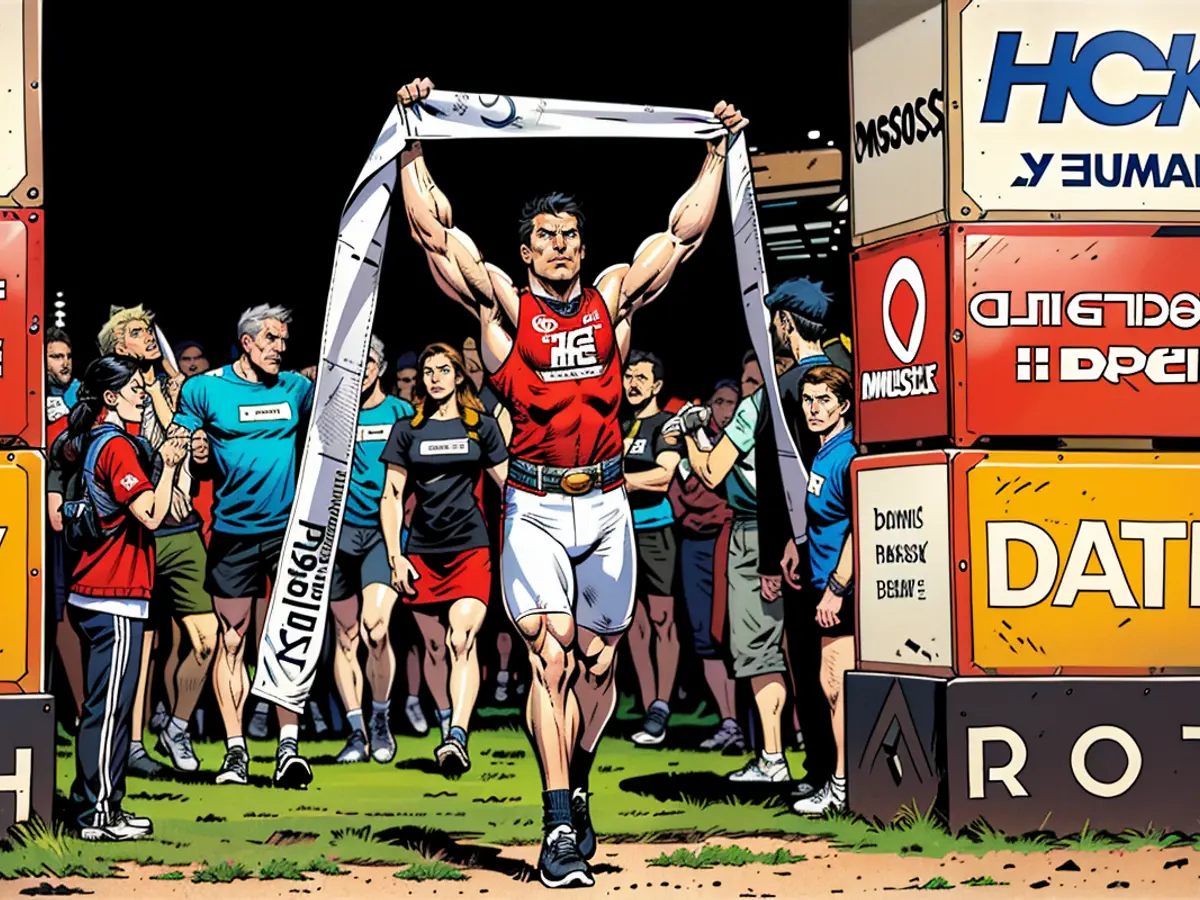Daring extreme sports figure Jonas Deichmann shatters an awe-inspiring global record.
Hundreds of individuals assemble in the dark on a sizable field, all within a wide radius of a well-lit gate littered with sponsor logos. There's a sense of anticipation in the air, and the throng is only reinforced by the palpable excitement that permeates the scene. Then, the noise starts, and there he is, crossing the finish line. This is Jonas Deichmann, the man who continues to push boundaries. "Can you believe what's happening here today? Thanks, Roth!", he shouts to his cheering fans.
Once again, he's claimed the world record, surpassing Sean Conway's previous record of 105 consecutive long-distance triathlons, which he accomplished just a year ago. Deichmann managed to catch up on Wednesday and surpassed Conway on Thursday. "This has been my life for the past eight to nine months. There was no room for anything else. It's so incredible to finally be here.", he says, beaming with pride. And on Friday, he'll keep going. "I didn't just want to do one more, I wanted to significantly exceed the world record." Deichmann has set his sights on completing 120 Ironmans in a row.
An Ironman consists of 3.8 kilometers of swimming, 180 kilometers of cycling, and 42 kilometers of running. Deichmann refers to the final marathon as "little more than a jog". Most people would find that unimaginable. Deichmann, however, refuses to succumb to even the slightest challenge. As the crowd celebrates him, he knows that "the project is not finished yet, which means I need to go to bed early tonight, have a great recovery, and at 6:30 am tomorrow I'll be back on the course. I can't make today an exceptionally special day because I'll suffer for it tomorrow."
He's covered a distance of 23,934.8 kilometers to date. By September 5th, he'll add another 3,161.2 kilometers. So, why does he do this? "Because it's possible. And because it's fun. I also want to find out what I'm capable of, what's possible. There's nothing more thrilling than long-distance racing for that." It sounds so straightforward when he talks about it.
"When we met him, we realized: 'Hey, it's well-thought-out, and he doesn't back down'"
"When we first met him, we realized: 'Wow, it's well-thought-out, and he doesn't back down'", says Felix Walchshofer. "What he accomplishes psychologically is simply astonishing. It became clear to us quite quickly that if he says he's going to do it, he'll do it. He'll see it through. But it's still hard to believe." Walchshofer is sort of the Ironman Pope in Franconia. He is the race director of the Challenge Roth, the legendary Ironman, which celebrated its 40th anniversary this year. The competition is a cult, and people enroll months in advance to secure their place in the following edition. With minor adjustments that make it even more picturesque, Deichmann completes the same route as the Challenge Roth. While the Challenge Roth swims in the Main-Donau Canal, Deichmann has to swim in the Rothsee. Buoys are set up for him - he swims four laps every morning to reach the 3.8 kilometers.
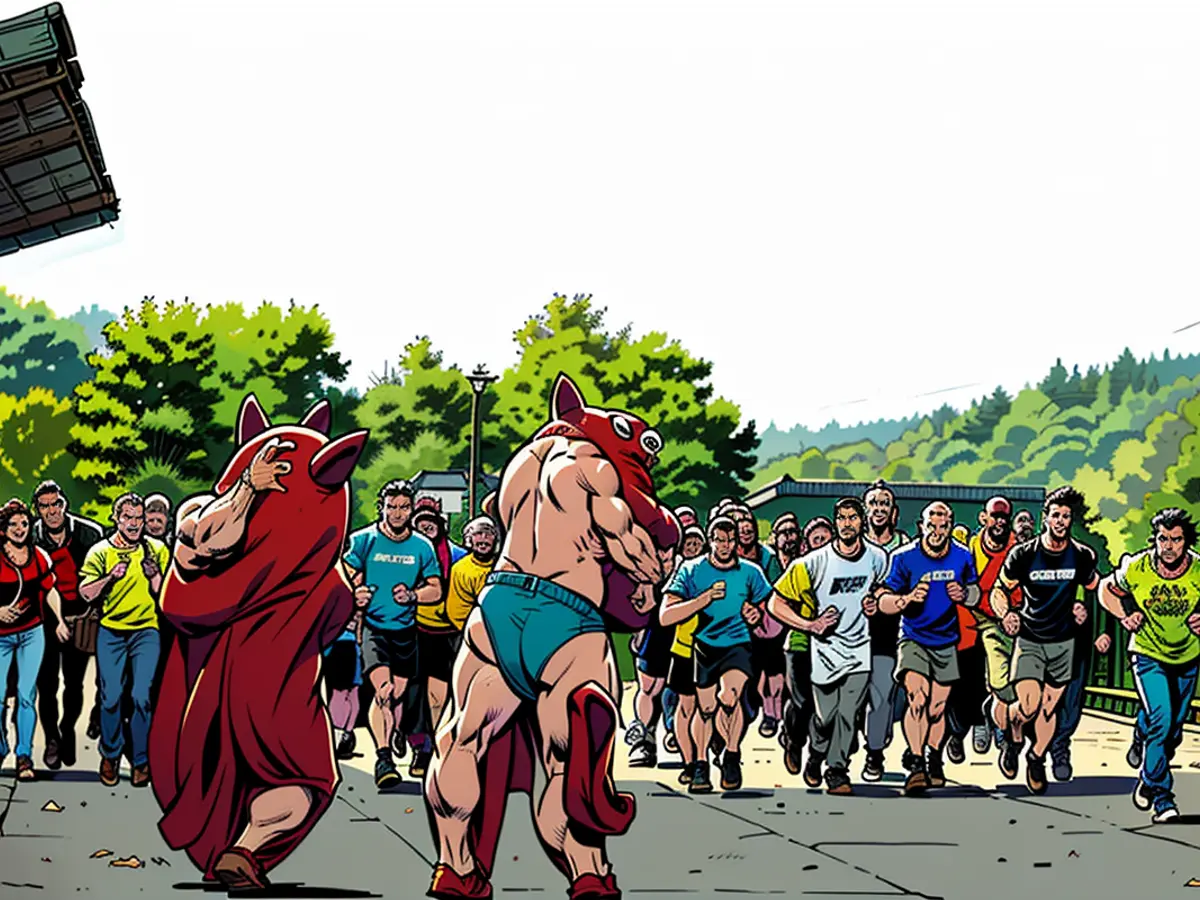
The moon is still in the sky, fog envelops the lake as the first athletes, eager to accompany Deichmann on this historic day, squeeze into their wetsuits, pump up their neon swim buoys. It's just after 6 am, and the van with Deichmann sets off at 6:30 am. "Jonas Deichmann Challenge 120" is written on the sides, and a jovial athlete steps out of the sliding door. "Fresh and lively" is what he always says when someone asks about his condition. It's also the routines that keep him going through this monumental undertaking. "This is gonna be amazing!" he says before diving into the water, which is surprisingly warm for this chilly morning. "It was amazing" will be his reaction when he emerges again.
Between laps, the extreme athlete makes a brief stop at the dock, takes a few sips from his water bottle, then continues. Nutrition, it's perhaps the most challenging aspect of an Ironman. Even in a single competition, let alone when you're back on the course the next day. He consumes 14.4 liters of fluid, and his body needs 10,000 calories simply to avoid collapse. Every day. "I don't drink or eat because I'm thirsty or hungry.", he says. And honestly, "I can't wait for a really healthy diet" after this challenge. A lot of sports nutrition is extremely sweet, and as soon as it's no longer required, he wants to eat what he wants, "normal food", as he puts it.
Deichmann's personal pain and the injury of his brother do not deter him.
His team ensures he maintains focus on his task. Time is of the essence, every moment spent on the course shortens his recovery period. There's no room for external commitments aside from sports. Only those eager for an interview with Deichmann are granted access, either by running alongside him or cycling beside. Father Sammy acts as the manager, while brother Siddharta is also present, including on the world record day. Following a crash at 45 mph on day 18, after completing the long distance on 15 of the previous 17 days, he was hospitalized with a broken bone and lung puncture. The start of the project was challenging, but Deichmann persevered. "I anticipated difficult moments," he reflected later. "I must focus on happiness, the thrill of reaching the next transition zone, the forthcoming meal, and the following day often improves."
He remains unfazed by physical discomfort. His feet expanded, necessitating larger shoes. Persistent back pain proved manageable, enabling him to cycle and swim before physical therapy alleviated his condition. "My ribs, vertebrae, everything shifted. My entire muscle was rigid and radiated pain. It was quite a sight," he admitted just before reaching the project's halfway point. Day 60 held a special significance: Challenge Roth. Joining the "crazy ones," as he called them, he navigated the famous Solarer Berg like others, passing through the tightly packed fan zone. The risk: being swept away by the atmosphere.
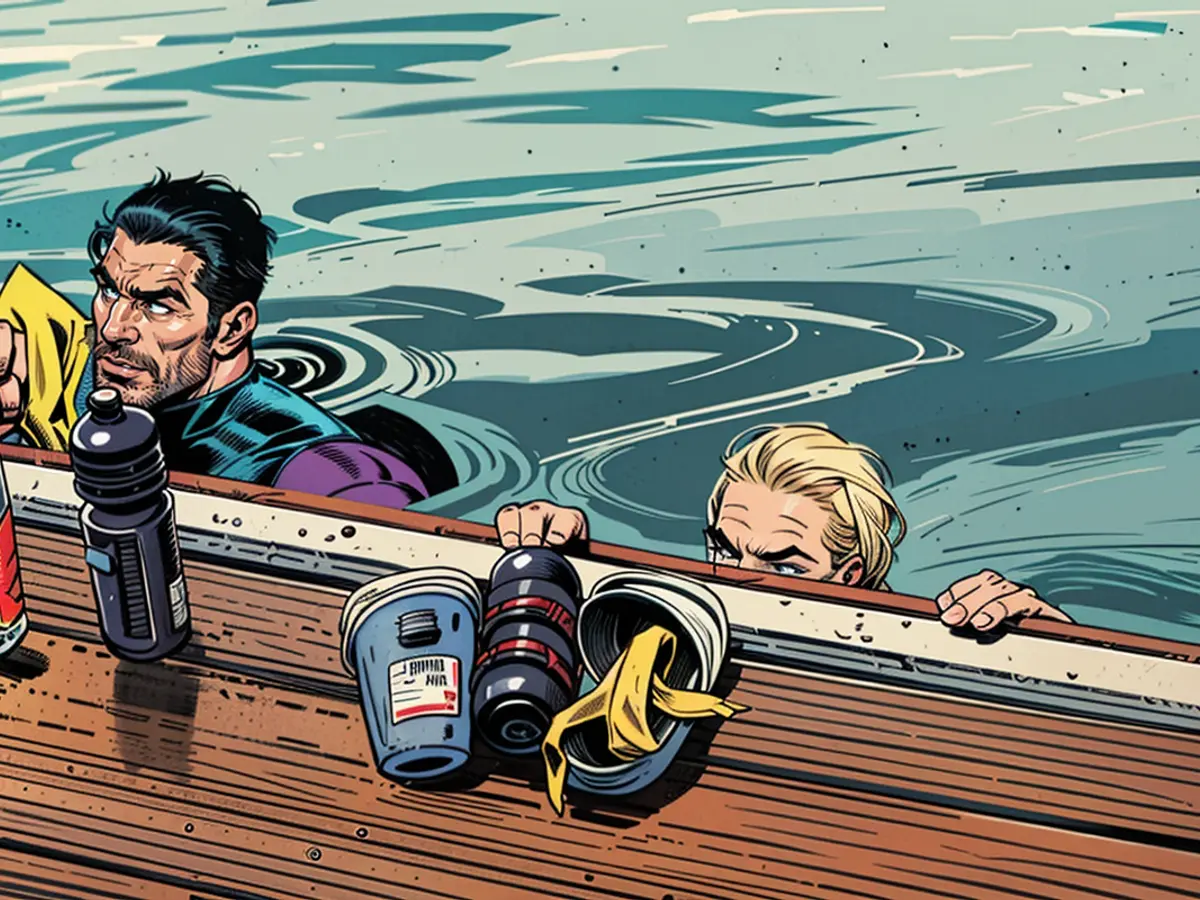
On this particular August 22nd, he emerged from the water after 1 hour and 8 minutes, having notably improved his swimming speed. However, his cycling and running times remained unchanged. Astonishingly, his heart rate rarely exceeded 110 beats per minute. Deichmann devoted 6:30 hours a day to cycling and 4:30 to 5 hours to running. "I'm in my stride," he commented. He averaged 14 to 15 hours of daily sporting activity. Pushing too hard could harm Deichmann, so he aimed to maintain a steady pace.
He was rarely alone during the project, save for brief, 12-minute naps and overnight sleep. This mismatched his previous adventures, during which he camped outworldly locations. His home had been the world since abandoning his job as a sales manager to pursue extreme athleticism and adventuring. In 2017, he cycled 14,331 kilometers from Portugal to Russia, and completed a triathlon around the world, spending the majority of his time alone. Last year, he repeated the New York City to Los Angeles trek twice. One world record followed another. On these journeys, he was accompanied by no one. The Challenge 120 presented a stark contrast.
"I must stay calm"
During a break, additional athletes joined him for a lap. This became a consistent tradition as more people expressed interest in joining him. Deichmann, ever the espresso enthusiast, made a pit stop at Walchshofer before pedaling to the second transition. The race director warmly commended Deichmann's impact on children and adolescents, noting his influence on those participating in the event. Seeing so many running alongside him inspired him to push on. Reflecting on his childhood, he often emulated his heroes. Now, people admired him, further driving his determination.
Throughout the world record day, numerous supporters waited encamped by the roadside. As daylight broke and cycling replaced swimming, Deichmann received a warm welcome. A birthday cake and a serenade greeted him regardless of personal celebrations. Deichmann switched into his flip-flops, his day's rest unobstructed by fuss. A camping chair awaited him, while refreshments were offered. Over 50 spectators watched him prepare to depart on his bike.
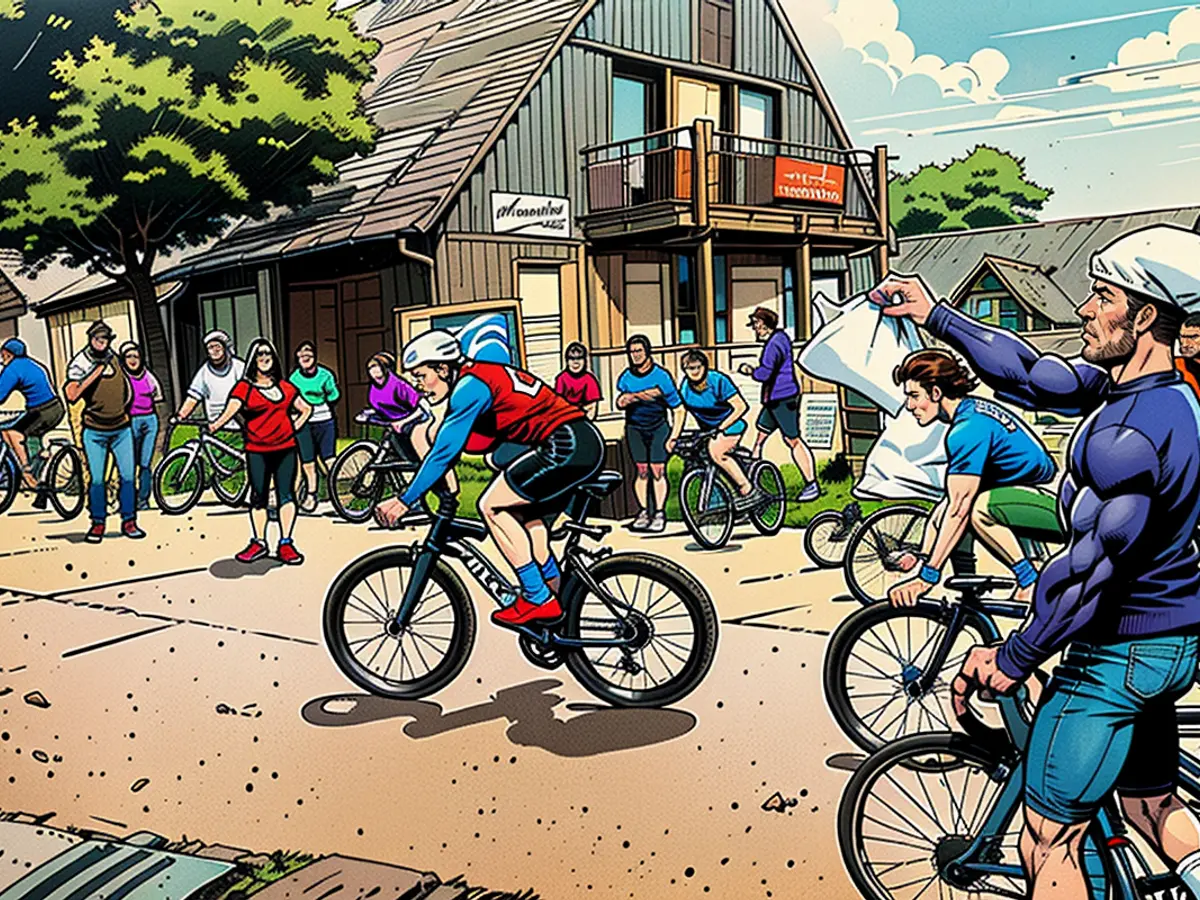
Consistently, he was accompanied due to the Challenge 120. His brief sleeping periods consisted of naps in the afternoon and restful nights in a local apartment. An altered routine compared to his solo trips on which he’d slept in remote locations. His base was formerly the world, having left his job as a sales manager to pursue extreme athleticism and adventuring. In 2017, he cycled 14,331 kilometers from Portugal to Russia, completing a triathlon around the world and establishing numerous records. His adventures involved solitude, save for the Challenge 120.
During a brief respite, cycling companions joined him. They wished to share his experience across regional roads, ending their journey at the project's second transition in Roth. A customary ritual: Deichmann savored an espresso at Walchshofer, conveniently situated near the Challenge headquarters. The race director was particularly delighted by "Jonas' heroic status for countless children and young people." Observing the multitude of participants, some covered 5 kilometers, others ventured further, left a lasting impression. Deichmann had once idolized others and now served as an inspiration. On this significant occasion, he inspired even more individuals. An estimated 80 people joined him, further gathering along the route. At kilometer 30, a festive gathering welcomed Deichmann and his growing entourage. A banner, fog machine, music, and even a cake-shaped melon marked the occasion. A little further, the festivities reached their zenith in Buchbach. The entire town congregated by the lake in celebration, emitting cheers and applause as Deichmann passed by, now accompanied by approximately 300 people. Regardless of the impact, he reassured himself, "Of course, it affects me, but I must stay calm."
The Challenge has Developed a Life of Its Own. Deichmann would swim, cycle, and run every day, regardless of whether anybody joined him or waited for him along the route. However, the allure of the insane attracts numerous individuals. Over 300 people decided to join him in his run towards the finish line in Büchenbach, which surpassed everyone's expectations. Unfortunately, the celebration has to be postponed - it's set for 12:01 PM, so he won't have to wake up at 5:40 AM the next day to drive to Rothsee.**
Physical Activity Remains Non-Negotiable
Taking it easy? Absolutely not, that would harm his well-being. He needs to put in 30 to 40 hours of physical activity daily post-challenge - just like a full-time job - "my bodily organs have grown a bit, you don't want to slam on the brakes unexpectedly." Plus, there are talk shows, book readings from his upcoming publication "Because I Can", scheduled for November 1st, and public speaking events. His next top-secret project is in development, too, another thrilling journey, albeit not as performance-driven as this one.
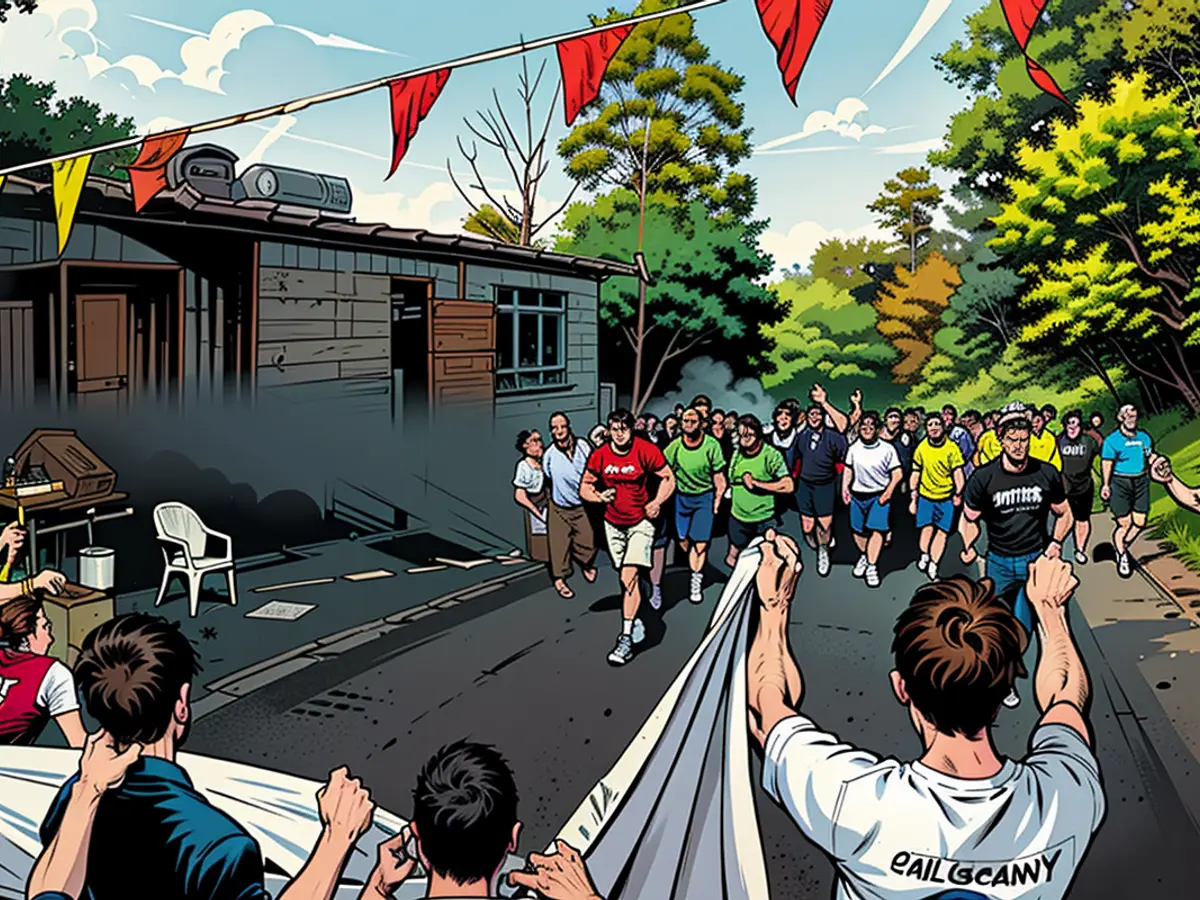
First, though, he reaches the finish line on August 22nd's evening. As a world record holder. A round of applause for the crowd, a few snapshots. Then, off he goes. No celebration. The alarm buzzes at 5:40 AM on Friday, back to Rothsee at 6:30 AM. Day 107.**
At the Challenge Roth, a renowned Ironman competition, the race director marvels at Deichmann's determination, stating, "What he accomplishes psychologically is simply astonishing."
Deichmann's Ironman journey is not just about breaking records; it's also about pushing his physical and mental limits. He admits, "There's nothing more thrilling than long-distance racing for me."
